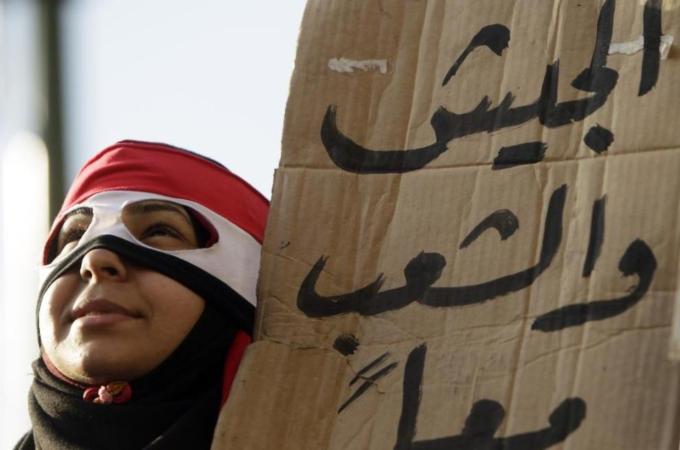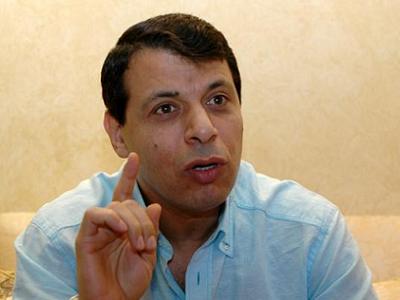لماذا سمحت روسيا وإيران بتدمير سوريا؟
د. فيصل القاسم
سنتفق جدلاً مع القائلين إن هناك ‘مؤامرة كونية’ على سوريا لتدميرها، وتشريد شعبها، وإضعاف جيشها وتفكيكه، وتجريدها من سلاحها التقليدي والاستراتيجي. وسنتفق أيضاً أن المؤامرة نالت من سوريا فعلاً، حيث تمت تسوية العديد من المدن والقرى السورية بالأرض على الطريقة الروسية في الشيشان، فيروي سكان الريف في محافظة إدلب وحدها فقط أن عدد القرى المدمرة هناك يزيد على ألف قرية، بحيث بدأ الناس يمرون بجانب تلك القرى ويتساءلون: ‘ماذا كان اسم تلك القرية؟’.
ولا داعي للحديث عن ريف دمشق وحلب ومحافظة حمص بأكملها، التي تشكل مساحتها فقط ثلث مساحة سوريا، ناهيك عن تدمير دير الزور والرقة وريف حماة ودرعا. وحدث ولا حرج عن مئات الألوف من القتلى، ناهيك عن مئات الألوف من المعتقلين والمفقودين. أما عدد النازحين واللاجئين فقد زاد عن نصف سكان سوريا. والجيش السوري لم يكن له ليستعين بالميليشيات العراقية واللبنانية والإيرانية والباكستانية والأفغانية واليمنية والروسية والكورية لو كان ما زال قادراً على القتال. زد على ذلك أن سوريا تجردت من سلاحها الكيماوي الاستراتيجي لتصبح بلا أنياب. وهناك حديث عن تجريدها من الصواريخ والسلاح البيولوجي، لكن بالتدرج. بالإضافة إلى ذلك أصبح النسيج الوطني السوري، والجغرافية السورية ذاتها مهددة بالتفكك، إذا لم تكن قد تفككت. وحدث ولا حرج عن الاقتصاد السوري الذي يحتاج لعشرات السنين كي يعود إلى ما كان عليه عام 2010.
ماذا يريد حلفاء النظام السوري كروسيا وإيران أكثر من هذه الكوارث الإنسانية والعسكرية والاقتصادية والاجتماعية؟ لماذا تركوا سوريا تصل إلى هذه المرحلة من الدمار والخراب والانهيار إذا كانتا فعلاً حليفتين للنظام في سوريا؟
لنتفق مع النظام أن هناك قوى كثيرة عربية وإقليمية ودولية تريد الإجهاز عليه وعلى سوريا، فأين كان حلفاؤه من كل هذه المؤامرات؟ وإذا كانت سوريا مهمة جداً لروسيا وإيران، فلماذا سمحتا بتدميرها وإنهاك جيشها وتجريدها من أسلحتها الاستراتيجية وإضعاف قوتها العسكرية؟
لو اتفقنا جدلاً أن ‘الإرهابيين’ والمتآمرين هم من دمروا سوريا، فلماذا سمحت حليفتا النظام روسيا وإيران بنجاح مخطط التدمير منذ البداية؟ هل كانت روسياوإيران لتسمحا بذلك لو لم تكن لديهما مصلحة في ذلك؟
إذا كنت تحب شخصاً لا بد أن تغار على مصالحه وتحميها، فهل فعلت إيران وروسيا ذلك في سوريا التي تدعيان الغيرة عليها؟ من يحب شخصاً لا يسمح بقتله أو على الأقل بإضعافه وتقطيع أوصاله وإنهاكه، لكن روسيا وإيران سمحتا بتخريب سوريا.
أتباع النظام في سوريا يتهمون كل من انتقد النظام مجرد انتقاد بأنه مشارك في تدمير سوريا. لكن لماذا لا يوجهون الاتهام أيضاً لحلفاء النظام الكبار؟ لماذا لا يسألون موسكو وطهران، لماذا لم تحبطا مشروع تخريب سوريا إذا كانتا تريدان مصلحتها ومصلحة النظام فعلاً؟ أليس الروس والإيرانيون أكبر المستفيدين من دمار سوريا؟
لقد أثبتت الأيام أنهم كأعداء سوريا، كانوا يتاجرون بها بصفاقة. ولعل ما كتبه أحد الكتاب الذي يقتبس اقواله دائماً مؤيدو النظام في ‘مدونة هاني’ أكبر إدانة لروسيا وإيران اللتين استخدمتا المحنة السوريا لأغراض خاصة جداً.
يقول هاني: ‘الصفقة الكيماوية الخاصة بسوريا هي مجرد جزء من التفاهم الشامل الأميركي- الإيراني (هي كانت بداية هذا التفاهم). أنا توقعت مسبقا أن إيران في النهاية ستتنازل، وستقبل بتقديم ضمانات لإسرائيل في مقابل التوصل إلى تسوية مع الأمريكان، وهذا هو ما حصل بالفعل. الصفقة الكيماوية الخاصة بسوريا كانت الضمانة التي قدمتها إيران لإسرائيل.
سوريا لم تكن طرفاً في الصفقة الكيماوية أبداً. هذه الصفقة هي ظاهرياً صفقة أمريكية- روسية، ولكنها في العمق صفقة إيرانية – إسرائيلية. والروس والأمريكان ليسوا أكثر من وسطاء في ما يتعلق بهذه الصفقة تحديداً. وقد طلبت أمريكا من إيران قبل أي شيء آخر نزع السلاح الكيماوي السوري. وهي لم تقبل أن تتفاهم مع إيران قبل نزع الكيماوي.
والسبب هو أن أمريكا أرادت تقديم ضمانات وتطمينات استراتيجية لإسرائيل، لأن الأمريكان يعتقدون أن التفاهم مع إيران غير ممكن دون تقديم ضمانات استراتيجية لإسرائيل، ولهذا السبب هم أصروا على تدمير سوريا ونزع كل أسلحتها قبل الشروع في التفاهم مع الإيرانيين، وإيران وافقت.
باختصار، فإن الصفقة الكيماوية السورية هي ربح استراتيجي صاف لإسرائيل. أما الصفقة النووية الإيرانية فهي الثمن الذي قبضته إيران مقابل تسهيل الصفقة الكيماوية السورية!
لا يوجد تشابه بين ‘الصفقتين’. الصفقة الكيماوية هي تنازل من سوريا للغرب لحساب إيران، والصفقة الثانية هي تنازل من الغرب لإيران. ما حصل هو أنالغرب خفف حربه على إيران في مقابل الضمانات التي قدمتها إيران ـ بالوساطة الأمريكية ـ الروسية على حساب سوريا لإسرائيل.
باختصار، لقد اتفقت ايران مع امريكا على تدمير سوريا، وتجريدها من سلاحها الكيماوي، وإنهاك جيشها كضمان لأمن إسرائيل مقابل الاتفاق مع الغرب على النووي وإعادة تأهيل إيران دولياً واقتصادياً.
الكلام أعلاه ليس صادراً عن المعارضة السورية كي نشكك في مصداقيته، أو نقول إنه مغرض، بل صادر عن مدونة معروفة بأنها مؤيدة، أو متعاطفة مع النظام السوري. ولذلك فهي تفضح إيران وروسيا اللتين تتشدقان بالدفاع عن سوريا. ويذهب أحد المدافعين عن النظام السوري إلى القول بحسرة إن ‘أول شعار طرحه الرئيس الإيراني الجديد روحاني بعد وصوله إلى السلطة كان شعار: ‘إيران أولاً’. وقد طبقه بحذافيره على حساب سوريا’.
لقد استغلت إيران وروسيا المحنة السورية أسوأ استغلال على الطريقة ‘الماكيافيلية’ الانتهازية، مثل أعداء سوريا وأكثر، خاصة وأن الطريق كان سالكاً أمام الإيرانيين والروس أكثر من أعداء سوريا بفضل ارتباطهم بالنظام.
باختصار، فإن ‘المتآمرين’ على سوريا ليسوا فقط خصوم النظام، بل أقرب حلفائه المزعومين الذين استغلوا الأزمة السورية لعقد الصفقات وتمرير الاتفاقات وإعادة رسم المنطقة على أشلاء ودماء السوريين ووحدة وطنهم.
والأيام ستكشف مدى خطورة اتفاق ‘كيري – لافروف’ حول سوريا الذي يشبهه البعض باتفاقية ‘سايكس-بيكو’ سيئة الصيت، إن لم يكن أخطر.
أخيراً علينا الاعتراف بعد كل ما حصل في سوريا أن الرابحين الوحيدين من مأساتها هم إسرائيل وأمريكا وروسيا وإيران. أما السوريون نظاماً وشعباً ومعارضة فهم أكبر الخاسرين.
وإذا كان حلفاء النظام سمحوا بكل هذا الدمار، وتاجروا بسوريا ‘على عينك يا تاجر’، فكيف نلوم أعداء سوريا والمتآمرين عليها؟ لك الله يا سوريا! لقد كنت فريسة تناهشها الحلفاء والأعداء على حد سواء













